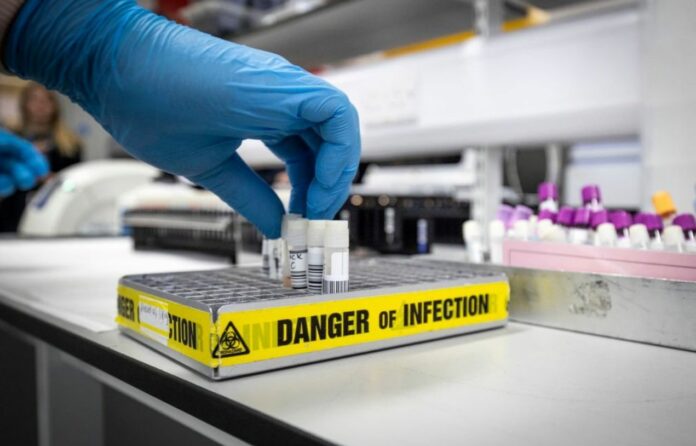This is the first study to demonstrate that the coronavirus infection alone harms the gut microbiota, and not the initial use of antibiotics to treat the sickness as previously believed.
A new study shows that being infected with the pandemic virus SARS-CoV-2 can reduce the number of bacterial species in a patient’s gut. This makes room for dangerous microbes to grow and spread.
The study is based on the idea that the widespread use of antibiotics in the last few decades to treat infections caused by disease-causing bacteria has led to more species that are resistant to antibiotics. This is because antibiotics kill the species that are most susceptible to the drugs that are available. Furthermore, changes in gut bacterial ratios have previously been associated with more severe COVID-19.
However, it was unclear until today whether the coronavirus infection disrupted the gut flora or an existing damaged gut made the body more sensitive to the virus. The latest study appears to support the first hypothesis. The current analysis also demonstrated that antibiotic-resistant organisms can enter the bloodstream, putting patients at a higher risk for secondary infections that can be fatal.
The trial, which was led by scientists from NYU Grossman School of Medicine, involved 96 patients with COVID-19 who were hospitalized in 2020 in New York City and New Haven, Connecticut. The majority of patients exhibited poor gut microbiome diversity, with a full quarter dominated by a single bacterial species, according to the findings. Parallel to this, populations of numerous bacteria that are known to include species resistant to antibiotics grew, possibly as a result of widespread antibiotic use in the early stages of the pandemic.
In 20% of patients, it was seen that the antibiotic-resistant bacteria in the gut had moved into the bloodstream. The authors of the study state that more investigation is required to determine why one group was more susceptible to a subsequent infection while others were not.
“Our findings suggest that coronavirus infection directly interferes with the healthy balance of microbes in the gut, further endangering patients in the process,” adds study co-senior author and microbiologist Ken Cadwell, PhD. “Now that we have uncovered the source of this bacterial imbalance, physicians can better identify those coronavirus patients most at risk of a secondary bloodstream infection.”
According to Cadwell, who is also a professor in the Departments of Microbiology and Medicine at NYU Langone Health, the new study is the first to demonstrate that the damage to the gut microbiome is caused by the coronavirus infection alone rather than by the initial use of antibiotics to treat the illness as other experts had previously believed. He continues by saying that the study offers the first concrete proof that the same bacteria that cause severe illnesses in patients’ guts are also making their way into their bloodstream.
The report will be published today in the journal Nature Communications.
For the study, researchers first infected hundreds of mice with the coronavirus and then examined the bacterial species composition in their stool samples. This step helped them figure out if the coronavirus could change the microbiome directly, without hospitalization or treatment.
To determine the nature of the gut microbiome and the presence of secondary infection, they next collected stool samples and blood tests from COVID-19 patients at NYU Langone Health and Yale University hospitals. If a certain group of bacteria made up most of the bacteria in the gut, they were called “dominant.”
According to study senior author Jonas Schluter, “our results highlight how the gut microbiome and different components of the body’s immune system are closely interconnected.” Schluter warns that because the patients received different types of treatments for their illnesses, the investigation could not fully account for all factors that may have contributed to the disruption of their microbiome and made their disease worse. “An infection in one can lead to major disruptions in the other,” he says.
Schluter states that the research team will next look at the reasons why some microbial species are more likely to leave the gut during COVID-19. According to the researchers, they also plan to investigate the interactions between several bacteria that may facilitate this migration into the bloodstream.
Source: 10.1038/s41467-022-33395-6
Image Credit: Getty
You were reading: Now We Can Better Identify COVID Patients Most At Risk Of A Secondary Infection – NIH Study
